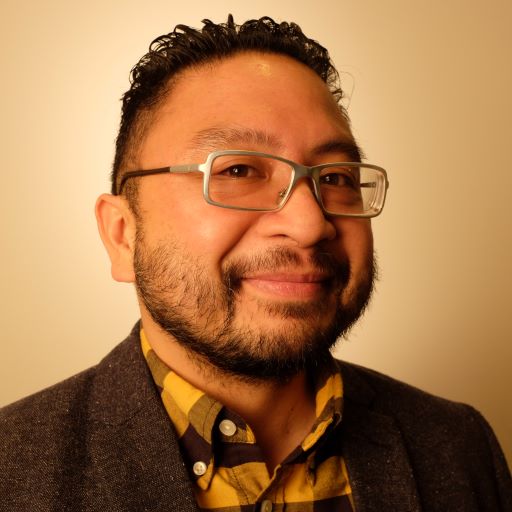Introduction
Dr. Villanueva is associate professor in the Department of Communication and Journalism at TAMU. His primary inquiries are in researching how marginalized communities of color survive the material realities of structural oppression that have been reproduced along the intersectional social identities of race, ethnicity, gender, sexuality, and class. To this end, he researches the role that communication, organizing, media, activism, and expressive culture play in place-based advocacy and social change goals of marginalized communities of color in cities. This research further examines how organizational communication and culture can contribute to more equitable, inclusive, and just futures. His research methods are interdisciplinary and informed by critical theoretical frameworks in communication, anthropology, sociology, cultural studies, and engaged scholarship.
Biography
Dr. Villanueva received his Bachelors of Arts in Black Studies and History from the University of California at Santa Barbara, his Masters of Science in Global Media and Communications from the London School of Economics and Political Science, and his PhD in Communication with a Graduate Certificate in Visual Anthropology from the University of Southern California. He previously was assistant professor (2015-2021) and associate professor (2021-2022) in the School of Communication, Loyola University of Chicago.
Courses Taught
Undergraduate Courses
- COMM 340: Communication and Popular Culture
- COMM 343: Communication in a Diverse World
- COMM 346: Media, Culture, & Identity
Graduate Courses
- COMM 616: Multimodal and Creative Research Methods
- COMM 689: Mediation, Space, Place, & Culture
- COMM 689: Autoethnography & Performance Studies
Research Interests
- Communication & Media Science
- Humanities & Critical/Cultural Studies
- Organizational Communication
- Media, Culture, and Identity
Selected Publications
Representative Publications
- Villanueva, G. (2022). Storytelling Networks that Build Community Power: Urban Equity Advocacy From a Communication Infrastructure Lens. Management Communication Quarterly, Online first: https://doi.org/10.1177/08933189221090491
- Villanueva, G. (2020). You must learn: Sampling critical hip hop pedagogy in communication education spaces. Pedagogy, Culture and Society, 1-19. Online First: https://doi.org/10.1080/14681366.2020.1801814
- Villanueva, G. (2020). Designing a Chinatown anti-displacement map and walking tour through communication asset mapping. Journal of Urban Design, 1-24. Online First: https://doi.org/10.1080/13574809.2020.1782182
- Villanueva, G., Gonzalez, C., Son, M., Moreno, E., Liu, W., and Ball-Rokeach, S.J. (2017). Bringing local voices into community revitalization: Engaged communication research in urban planning. Journal of Applied Communication Research, 45(5), 474–494. https://doi.org/10.1080/00909882.2017.1382711
- Villanueva, G., Broad, G., Gonzalez, C., Ball-Rokeach, S., & Murphy, S. (2016). Communication asset mapping: An ecological field application toward building healthy communities. International Journal of Communication, 10, 2704–2724. Retrieve from: https://ijoc.org/index.php/ijoc/article/view/5335
Books
- Villanueva, G. (2021). Promoting Urban Social Justice through Engaged Communication Scholarship: Reimagining Place. Social Justice and Communication Activism Series. New York: Routledge.
- Based on the author’s scholar-activist interventions to promote social justice in cities, this book highlights the role engaged communication scholarship can play in fostering a more equitable future. Through three innovative case studies situated in South Los Angeles, the book illustrates engaged communication scholarship projects grounded in design criteria that are social justice-oriented, place-based, collaborative, and public. It models university-community partnerships that promote positive social change in marginalized communities that stand to benefit the most from university resources, guiding readers in how these partnerships can be incorporated into social justice-oriented curriculum and engaged learning projects. It provides strategic recommendations for how “in community” communication research and media practices can be used to build local power in marginalized urban neighborhoods, and calls for communication’s research, pedagogy, epistemologies, practices, ethics, politics, and community engagement to purposefully serve the concerns of marginalized groups in society. The book will be of interest to researchers and social change practitioners interested in solution-oriented work in cities within the fields of research methods, organizational communication, urban planning, public policy, sociology, and social work.

